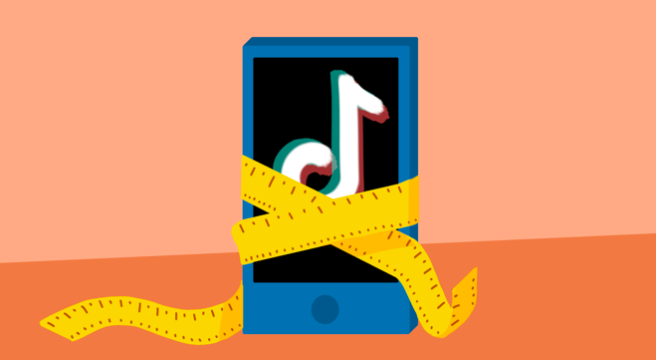Tik Tok Diet Culture: Triggering or Comforting?
October 23, 2020
Amidst the vast ocean of videos posted on Tik Tok, creators have recently been posting videos explaining what they eat in a day. These videos originated when quarantine started, because many people began wanting to get in shape or lose weight. Although this may seem like a convenient tool to inspire people on their fitness journeys, some videos can be harmful and misinformative.
Abby Sharp, a registered dietitian reviewed a few “what I eat in a days,” and after watching them she noted a common pattern. The creators making these videos were only eating around 1,000 calories per day, and one person only consumed a measly 550 calories. The FDA recommends that a female should consume about 1,600-2,000 calories per day, and that a male should eat between 2,000 and 3,000 calories per day. As presumed, the people creating these videos were severely undereating.
Through Tik Tok’s precise algorithm, those interested in these types of videos will be fed more and more of them, encouraging them to pick up these unhealthy eating habits. Over thirty-seven percent of Tik Tok users are between the ages of ten and nineteen, and it is likely that these adolescents are unaware of the dangers that can come along with undereating. Some of the negative side effects can include nutritional deficiencies which can lead to hormonal imbalances, metabolic disruptions, irritability, and difficulty concentrating.
Along with physical consequences, these videos pose a danger to the psychological wellbeing of users, many of whom may develop a toxic relationship with food. Chances are, that viewers will start to categorize foods as “good” or “bad” based on these questionable and unreliable videos. Also, lots of people develop the habit of restricting foods and calorie counting while also trying to over exercise. Many also develop food guilt, where they feel remorseful for eating specific foods.
Users need to become aware of the false realities present on Tik Tok. For example, a video telling you how to lose 10 pounds in a week might not be the most reliable. It is also important to note that the recommended healthy weight loss per week is one or two pounds, and definitely not ten. Because middle schoolers and high schoolers are most susceptible to the negative influences of other’s unhealthy eating habits, more than half of girls and a third of boys participate in dangerous weight control habits. These routines can include skipping meals, fasting, and even vomiting.
Influencers on Tik Tok also promote products that are supposed to be “healthy,” however they are often not even FDA approved. A prime example are Rae Metabolism Drops, which claimed to speed up a person’s metabolism. After being popularized through Tik Tok, with videos claiming that these drops will help someone lose weight very quickly through speeding up a person’s metabolism, many teenage girls began purchasing this product, and, to avoid a lawsuit, Rae recalled them. Although these drops were not necessarily harmful to one’s health, the false claims made by the company provided misinformation for many people.
On the flip side, influencers such as Brittani Lancaster have attempted to advocate for those recovering from eating disorders. Brittani herself suffered from anorexia for two years at age sixteen and she later developed binge eating disorder. She has recently learned to intuitively eat, and she shares her progress with her 770,000 followers. Her goal in doing so is to encourage people to develop a more comfortable relationship with food. She preaches things like “Your worth is so much more than a number or a size.” Luckily, she has developed a supportive fan-base that helps to spread awareness on the dangers that come with eating disorders.
Another example of a positive influencer is Lexi Hidalgo. She often posts “what I eat in a day” videos, and she stresses that food is fuel, to encourage her viewers to also develop a more practical relationship with food. Fortunately, there are countless other influencers doing the same to advertise how to live a balanced and healthy lifestyle.







